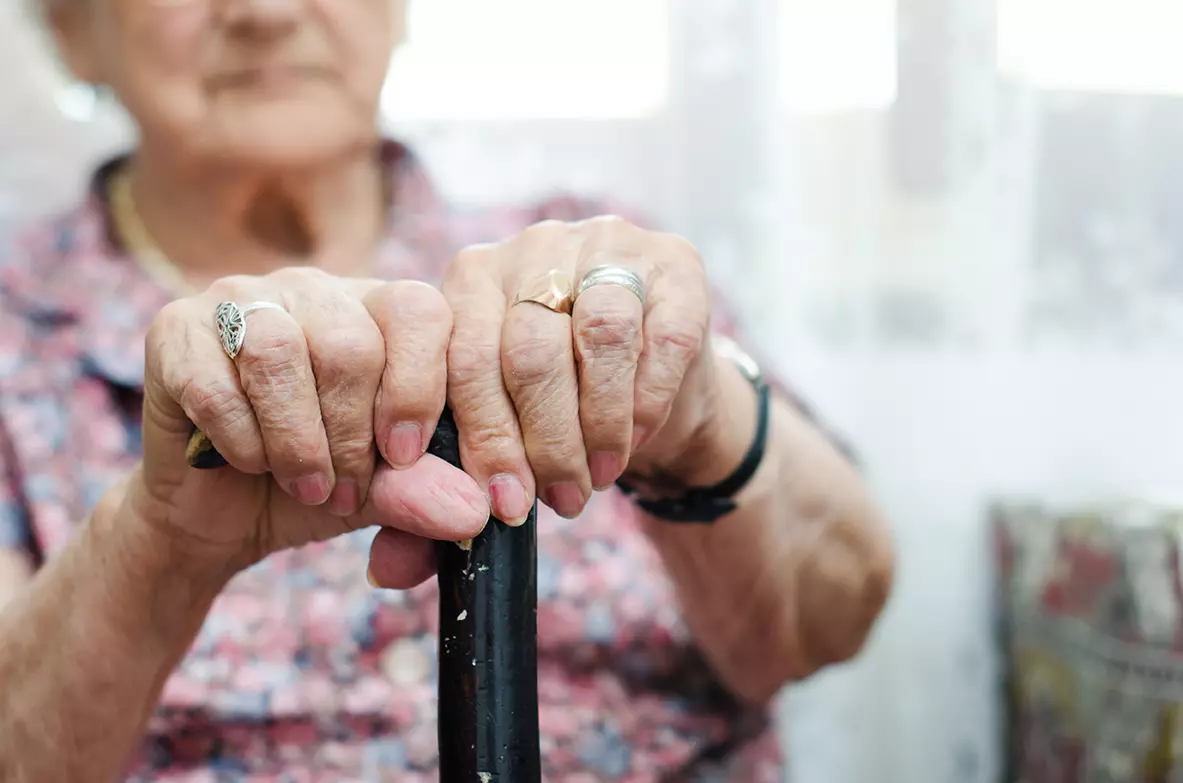
Arthritis in fingers is a common condition among older adults that can significantly impact everyday tasks like buttoning clothes, writing, or holding utensils. As joints weaken and stiffness sets in, maintaining independence becomes more challenging without proper care, adaptations, and support.
This article outlines pain relief options, exercises, and daily strategies tailored for seniors, along with guidance on when to seek professional care services.
What Causes Arthritis in Fingers?
Arthritis in fingers usually develops as a result of osteoarthritis, where cartilage breaks down over time, or rheumatoid arthritis, an autoimmune condition that affects joint lining. Common symptoms include:
Find YOUR ideal care home NOW!
- Pain and stiffness in joints
- Swelling around finger knuckles
- Reduced grip strength
- Joint deformities in advanced stages
The condition often affects the distal interphalangeal joints (end joints) and the base of the thumb.
Further reading: Different Illnesses
Pain Relief and Treatment Options
There’s no cure for arthritis, but a combination of treatment options can significantly reduce discomfort and improve finger mobility.
| Treatment | Description | Availability |
|---|---|---|
| Topical NSAIDs | Anti-inflammatory gels (e.g., ibuprofen) applied to affected joints | Over the counter or prescription |
| Paracetamol or oral NSAIDs | Painkillers to reduce inflammation and discomfort | GP recommended or prescribed |
| Hot and Cold Therapy | Heat packs to relax muscles; cold packs to reduce swelling | Home-based or physiotherapy sessions |
| Hand Exercises | Gentle stretching and strengthening routines for joints | Guided by therapists or NHS hand clinics |
| Assistive Devices | Ergonomic tools, jar openers, and adapted kitchenware | Available online or from occupational therapists |
Early treatment can delay progression and reduce the risk of joint deformity.
Struggling with hand pain or reduced dexterity?
Arthritis in the fingers can make everyday tasks like dressing, cooking or writing increasingly difficult for older adults. When pain or loss of hand function starts to affect independence and safety at home, additional support may be needed. Senior Home Plus helps families explore care home options across the UK when daily activities and personal care become harder to manage alone.
Get guidance on finding a care homeFree guidance • No obligation
Daily Tips for Managing Arthritis in Fingers
Here are practical strategies seniors can implement at home:
- Warm water hand soaks in the morning to reduce stiffness before breakfast.
- Use voice-activated or easy-grip tools in the kitchen, bathroom, and garden.
- Apply paraffin wax therapy or use a heating pad in the evening.
- Try range-of-motion exercises, such as finger stretches and gentle thumb circles, at least twice daily.
- Avoid repetitive gripping activities without breaks.
You can also speak to your GP about referrals to a hand therapist or request a home care assessment.
When to Consider Home Support or Assisted Living
If arthritis makes it difficult to carry out daily tasks like dressing, preparing meals, or medication management, it might be time to explore home care assistance or part-time residential support.
At Senior Home Plus, we help families:
- Identify care options that accommodate arthritis and mobility challenges
- Understand how to fund care through benefits like Attendance Allowance
- Connect with homes offering hand mobility support, adapted environments, and pain management services
Our advice is free, confidential, and tailored to your situation.
Frequently Asked Questions (FAQ)
What type of arthritis affects fingers most often?
Osteoarthritis is the most common, but rheumatoid arthritis can also affect finger joints, especially in older adults.
Can finger arthritis be reversed?
No. Arthritis is a degenerative condition, but pain and function can be managed with medication, exercise, and assistive tools.
What exercises help with arthritis in fingers?
Simple range-of-motion activities like finger bends, thumb circles, and squeezing a soft stress ball can improve flexibility and reduce stiffness.
Is there a specialist for finger arthritis?
Yes. You may be referred to a rheumatologist or hand therapist for a tailored treatment plan.
When should I consider home care?
If arthritis limits your ability to cook, wash, dress, or take medication consistently, it may be time to consider in-home support or assisted care.
Need help finding a care home?
Senior Home Plus offers free personalized guidance to help you find a care facility that suits your health needs, budget, and preferred location in the UK.
Call us at 0203 608 0055 to get expert assistance today.
Search for Care Homes by Region in the UK
| East Midlands | Eastern | Isle of Man |
| London | North East | North West |
| Northern Ireland | Scotland | South East |
| South West | Wales | West Midlands |
| Yorkshire and the Humber |
You are looking for a care home or nursing home for your loved one ?
Share this article :
Latest posts
You are looking for an establishment for your loved one ?
Get availability & prices
Fill in this form and receive
all the essential information
We would like to inform you of the existence of the opposition list for telephone canvassing.










